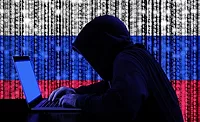Hacking Warriors ‘Enlist’ in Pentagon Cyberwar
There’s a dogfight among the biggest U.S.-based military contractors as they battle over young hacker talent to win the billions of dollars starting to spill out of the Pentagon following the recent announcement that the
Such giants as Northrop Grumman, General Dynamics, Lockheed Martin and Raytheon are hiring Red Bull-fueled geeks to work on cybersecurity contracts and R&D just as these contractors are gaining ground with big price tag physical security projects for the military and governments. The Pentagon already has several thousand people assigned to cybersecurity protection, countermeasures and proactive warfare strategies.
Winn Schwartau, founder, SCIPP International and InfowarCon and one of Security Magazine’s 25 Most Influential People, has been urging action for three decades, especially from the military. “In 1996, I was speaking about the security integration of the private sector and government. At one point, I referenced some security details about
A few years back, Schwartau called for the creation of a national cyber-corps, “focused on using the innate untapped talents of kids from middle through high school. Mom and pop and family are mission critical to the security of enterprise and country.”
While no one expects Raytheon, for example, to farm school playgrounds, there is recruiting of top young computer, communications, gaming and programming talent.
No doubt, the Pentagon is taking on a more aggressive role. But it hasn’t been totally sitting on the sidelines. In the past there have been numerous projects, both successes and failures. There was the HERF (high energy radio frequency) raygun to “melt” the insides of computers and other electronic devices. Ironically that project led to a do-it-yourself HERF gun subculture. Then there was the Pentagon’s robotics work as it tried to develop ant-sized robots that could crawl inside computer gear to disable the inner workings.
The Internet, and dependence on it, is today’s change agent, coupled with growing evidence that terrorists and governments are using the Internet to hack into military, infrastructure and private sector networks.
Corporations such as Cisco Systems have done pioneering work related to Internet security. Cisco, which for years viewed the Internet as essential as the electricity grid, for instance, has its
Check this New York Times article related to the above Zalud’s Blog reporting:
http://www.nytimes.com/2009/05/31/us/31cyber.html?_r=1&scp=3&sq=Pentagon%20cybersecurity&st=cseLooking for a reprint of this article?
From high-res PDFs to custom plaques, order your copy today!





